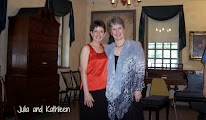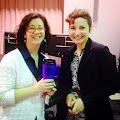November and December of 2015
will be the months remembered for the horrific terrorist attacks in Paris and
San Bernardino. As a nation, we mourn
and sympathize with the country of France and the state of California. Social media lit up with pictures of Paris
and San Bernardino, expressions of sympathy, pictures of the French flag,
quotes from politicians, religious, and philosophical leaders. Our hearts go out to all affected by these
horrible acts and to those who survived.
Multiple times on Facebook
appeared a quote from American composer/conductor, Leonard Bernstein. In reply to the assassination of President
John F. Kennedy in November 1963, Bernstein wrote a letter to be included in
the New York Philharmonic programs that weekend. The quote:
“We musicians,
like everyone else, are numb with sorrow at this murder, and with rage at the
senselessness of the crime. But this
sorrow and rage will not inflame us to seek retribution; rather they will
inflame our art. Our music will never
again be quite the same. This will be
our reply to violence: to make music more intensely, more beautifully, more
devotedly than ever before.”
From an historical point of
view, Maestro Bernstein hit upon the healing and comforting power of music. Across the centuries music has been written
to commemorate freedoms won, for commentary during times of suffering and war,
and times of peace. Whether these pieces
of music were composed to arouse a sense of patriotism or give solace in the
time of loss, music’s profound effect is felt on an individual basis. We turn to music…..the great comforter and
the sound that will transport us for a few minutes or hours to a place of
escape.
Two days after President
Kennedy was shot by an assassin, Bernstein conducted the New York Philharmonic
in a performance of Mahler’s 2nd Symphony, “The Resurrection.” Writing
about the choice of resurrection, the conductor expressed that, “….
resurrection was for the soul of one we love, but also for the resurrection of
hope in all of us who mourn him.”
As I thought about what
Leonard Bernstein had written, I spent time looking at music history and which composers
wrote works during times of conflict and what inspired them to write that
specific piece. One could go on for
pages citing works of composers, yet, I chose four composers to highlight for
their beliefs and musical reactions to political strife.
 Dame Ethel Smyth (1858-1944) was a British composer, suffragette
and author. Having joined the Women’s
Social and Political Union in 1910, Dame Ethel composed March of the Women, the anthem and battle call of the
movement. The anthem was sung across
England to further the demand for women’s rights. Along with other suffragettes, she was incarcerated
at Holloway Prison in 1912 for she had broken windows and caused political
disorder. Leaning out of her cell with
tooth brush in hand, she conducted her fellow suffragettes singing their
anthem. Close your eyes and envision what
a performance that must have been. A
year earlier in 1911, Ethel had conducted the same anthem at the Royal Albert
Hall in London. In my personal opinion,
I think the 1912 prison performance was most likely the most impassioned one
given!
Dame Ethel Smyth (1858-1944) was a British composer, suffragette
and author. Having joined the Women’s
Social and Political Union in 1910, Dame Ethel composed March of the Women, the anthem and battle call of the
movement. The anthem was sung across
England to further the demand for women’s rights. Along with other suffragettes, she was incarcerated
at Holloway Prison in 1912 for she had broken windows and caused political
disorder. Leaning out of her cell with
tooth brush in hand, she conducted her fellow suffragettes singing their
anthem. Close your eyes and envision what
a performance that must have been. A
year earlier in 1911, Ethel had conducted the same anthem at the Royal Albert
Hall in London. In my personal opinion,
I think the 1912 prison performance was most likely the most impassioned one
given!  Ludwig van Beethoven’s (1770-1827) “Ode to Joy” from his Ninth
Symphony has been performed during times of unrest, protest and
celebrations. Using a portion of
Friedrich Schiller’s poem honoring brotherhood and the unity of all mankind,
Beethoven’s work has been performed at Tiananmen Square during the student
uprising, at the fall of the Berlin Wall conducted by Leonard Bernstein and by
protesters during the demonstrations against Chile’s dictator Pinochet. Though not composed as a political commentary
piece, “Ode to Joy” rings forth as a hymn of unity, comfort and compassion for
every citizen of the world.
Ludwig van Beethoven’s (1770-1827) “Ode to Joy” from his Ninth
Symphony has been performed during times of unrest, protest and
celebrations. Using a portion of
Friedrich Schiller’s poem honoring brotherhood and the unity of all mankind,
Beethoven’s work has been performed at Tiananmen Square during the student
uprising, at the fall of the Berlin Wall conducted by Leonard Bernstein and by
protesters during the demonstrations against Chile’s dictator Pinochet. Though not composed as a political commentary
piece, “Ode to Joy” rings forth as a hymn of unity, comfort and compassion for
every citizen of the world. Since Gena Branscombe (1881-1977) has been a part of my life for the past
16 years, I do tend to put her music forth frequently in this blog. To financially assist the Canadian Red Cross
during World War I, Miss Branscombe and fellow Canadian poet Katherine Hale joined
together to publish the song, “Dear Lad o’Mine.” A mother prays for the protection of her
soldier son with outbursts of anger at war, followed by comforting thoughts for
his safety in the trenches. All proceeds
from the sale of this song went to the Canadian Red Cross. During World War II, Gena worked with fellow
Canadian poet, Arthur Stringer, to publish “Grow Softly Maple Leaves,” a song
of comfort to all who lost their lives protecting the rights of Canadians. Rather than rouse people to the cause of war,
composer and poets sought to make aware the horrors of war and at the same time
pay tribute and comfort to those who fought and those who survived.
Since Gena Branscombe (1881-1977) has been a part of my life for the past
16 years, I do tend to put her music forth frequently in this blog. To financially assist the Canadian Red Cross
during World War I, Miss Branscombe and fellow Canadian poet Katherine Hale joined
together to publish the song, “Dear Lad o’Mine.” A mother prays for the protection of her
soldier son with outbursts of anger at war, followed by comforting thoughts for
his safety in the trenches. All proceeds
from the sale of this song went to the Canadian Red Cross. During World War II, Gena worked with fellow
Canadian poet, Arthur Stringer, to publish “Grow Softly Maple Leaves,” a song
of comfort to all who lost their lives protecting the rights of Canadians. Rather than rouse people to the cause of war,
composer and poets sought to make aware the horrors of war and at the same time
pay tribute and comfort to those who fought and those who survived. Often times politically based
musical works are wrapped in alternative storytelling to by-pass
censorship. So was the case with Finnish
composer, Jean Sibelius (1865-1957)
when he wrote the orchestral tone poem, Finlandia. This work was a protest against the
censorship of the Russian Empire. To
perform Finlandia, the title was
changed to appease censors yet the underlying story of this provoking and
tumultuous work was the struggle of the Finnish people to recover their
country. In 1941 Sibelius reworked Finlandia into a hymn with words by
Eikko Antero Koskenniemi. The hymn is
now one of the most important national songs of Finland. Here is a link to the hymn........
Often times politically based
musical works are wrapped in alternative storytelling to by-pass
censorship. So was the case with Finnish
composer, Jean Sibelius (1865-1957)
when he wrote the orchestral tone poem, Finlandia. This work was a protest against the
censorship of the Russian Empire. To
perform Finlandia, the title was
changed to appease censors yet the underlying story of this provoking and
tumultuous work was the struggle of the Finnish people to recover their
country. In 1941 Sibelius reworked Finlandia into a hymn with words by
Eikko Antero Koskenniemi. The hymn is
now one of the most important national songs of Finland. Here is a link to the hymn........
A hymn creates a sense of
pride for Finland and leads that country to its rights for making their own decisions
and political statements.
In their own way, each of
these artists made a statement against war, violence and oppression. In my mind, they sought comfort for those at
home, concern and love for those at the front lines and then a sense of
patriotism for their country. Whether
their music was heard in a grand concert hall, a church, a small recital hall,
in someone’s home or for an individual’s personal listening, these artists
abhorred the senseless violence and through their music sought to triumph the
mind over the world’s heightened sense of fear.












 Thanks, Steph.
Thanks, Steph. 



























